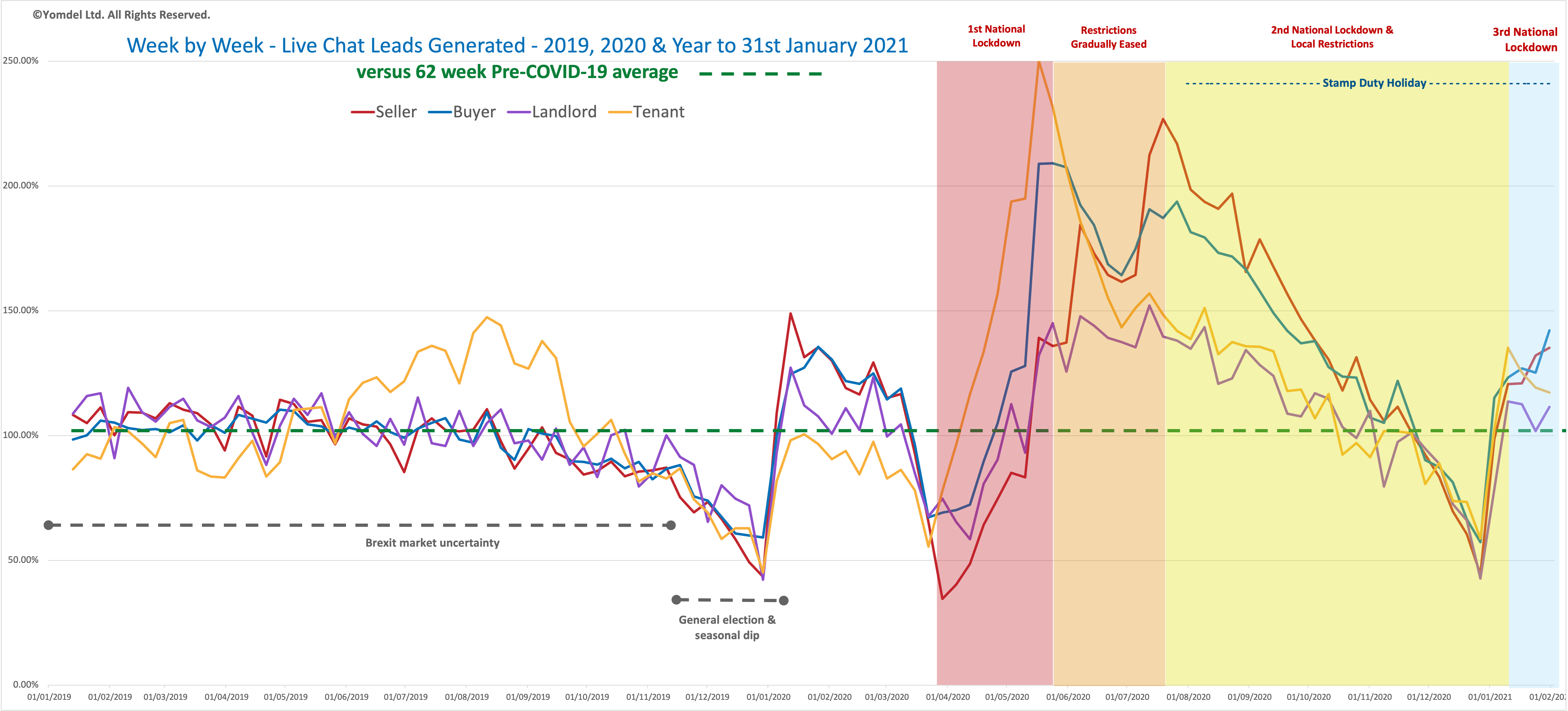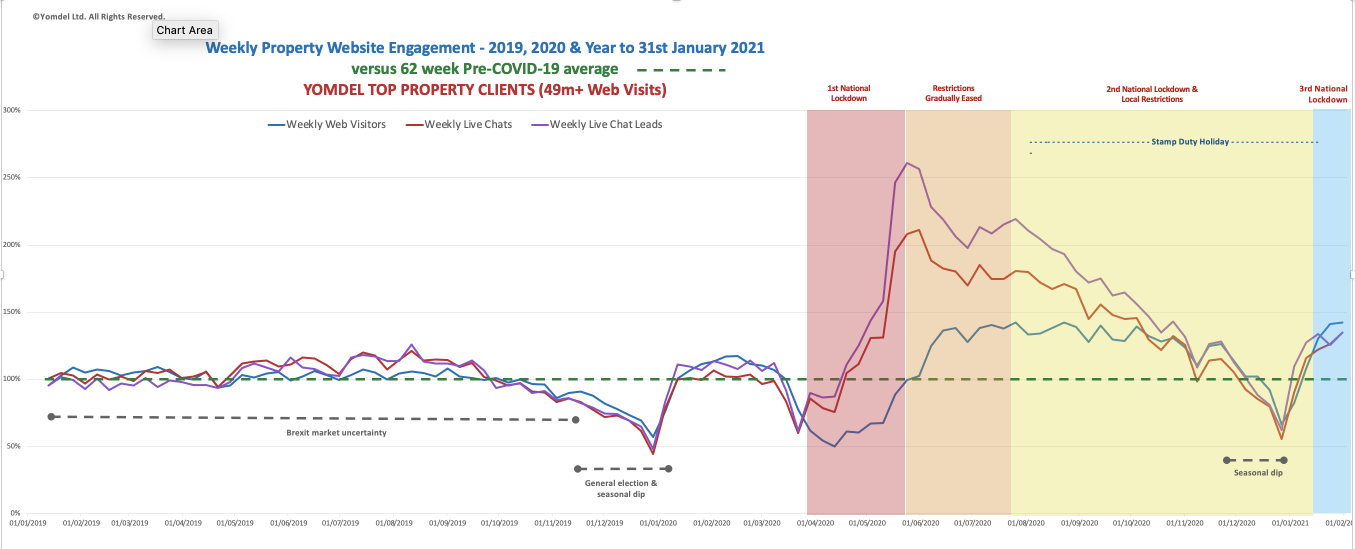Sentiment in the UK property market steadied in the past week ahead of a parliamentary debate on a possible extension to the stamp duty holiday, but irrespective of the outcome it was uncertain what impact, if any, any decision would have. Traffic to estate agent websites surged, suggesting uncertainty around lockdown timescales and restrictions have only served to make consumers more active, according to the latest data from the Yomdel Property Sentiment Tracker (YPST).
With vendor enquires increasing yet again last week, coupled with buyers surging by a full 13% week on week, it seems clear that consumers are not put off by the uncertainties they face, either economically or socially. Landlords also bounced back around 10 points on our scale, and tenants steadied too with only a fractional decline of two points.
Within the battle to complete sales before any SDLT deadline, there is also a potential momentum building towards new market activity, irrespective of the decision, YPST data for the week ending midnight 31 January showed.
Engagement with own-branded estate agency websites increased again last week, and now sits on a par with the previous all-time high last seen in August 2020. This is the most significant indicator that consumers are utilising digital channels more than ever, fuelled again by the current lockdown. This is reinforced by the fact that live chat usage on agent websites, and consequent leads generated, both sit at levels not seen since the height of the first 2020 lockdown.
Yomdel provides 24/7 managed live chat services to 3,800 estate agent offices in the UK, handling more than a 1.5m chats per year. It has analysed the data and leads captured in live chat going back to January 2019, up until week ending 31 January 2021. The website visitor data is a sample across major estate agency groups in the UK and covers in excess of 49 million unique website visits back to January 2019.
“Whilst many agents and customers out there are scrambling to make completions before the SDLT holiday deadline, it would appear that buyers and sellers are not put off by the uncertainty, and appear determined to be active in the market whatever happens next,” said Yomdel Founder & CEO Andy Soloman.
“The property sector is incredibly resilient, often the bedrock of economic stability, but 2020 performance definitely surprised us all, so we must look at 2021 differently, recognising that consumer motivations have changed, along with their tolerance for and ability to adapt to challenging circumstances,” he added.
The YPST methodology establishes a base line average shown as 100% or 100, calculated according to average engagement values over the 62 weeks prior to the first national lockdown on 23 March 2020, and plots movements from there according to the volumes of people engaging in live chat, their stated needs, questions asked, and new business leads generated. Data is measured over full 24-hour periods.
New vendors were up again by 2.3%, or 3.04 points, to end the week on 135.17, some 35% above the average, on a par with the same week last year.
Buyers rallied an impressive 13.53%, or 16.94 points, to close at 142.16, 42% above the pre-covid-19 average and 12% UP on the same week 2020.
Landlords recovered in the week, rising 9.58%, or 9.75 points, to finish at 111.54, 11% above the average and 11% higher than the same week last year.
Tenants were the only slight faller 1.64%, or 1.95 points, to close at 117.26, still 17% above the pre-covid-19 average and a full 27% UP on the same week last year.
The following graph looks at the relationship between website visitor volumes, live chat volumes and the volume of leads generated. The data samples more than 44 million visitors to estate agent websites from Jan 2019 – 31 January 2021 and shows how web traffic (blue line) still 26% higher than the same week last year. The volume of people using live chat (red line) and the numbers of new business leads captured (purple line) are 26% and 18%, respectively, above the same week 2020.





Couldn’t agree more. The Stamp Duty holiday is just one of 3 factors affecting demand in our area.
Growing enthusiasm followings years of Brexit uncertainty by second home and investment purchasers has been evident, while a strategic shift in demand has been undoubtedly triggered by the change in work practices by those forced to adapt by the pandemic.
The latter group now feel enabled to choose their home’s location by the quality of life available, perhaps by the grammar school system in some areas, where previously these areas’ remoteness from larger employment centres restricted both demand and prices.
“Cliff edge” seems unlikely.
You must be logged in to like or dislike this comments.
Click to login
Don't have an account? Click here to register